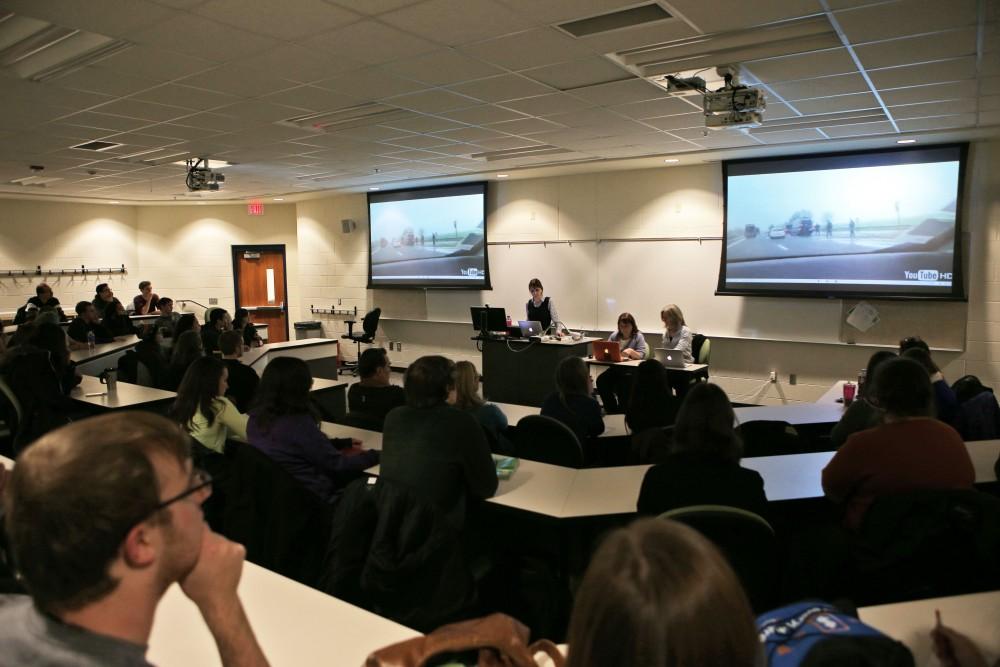French tragedy hits home at GV

GVL/Kevin Sielaff
Jan 19, 2015
Grand Valley State University French professors hosted an informational meeting on Jan. 14 to discuss the recent Charlie Hebdo terrorist attacks in Paris, France.
Charlie Hebdo is a satirical weekly magazine that has cartoons and articles on topics such as religion, politics and culture. At 11:30 a.m. on Jan. 7, two masked gunmen stormed the Charlie Hebdo offices in Paris, killing 17 people, some of whom worked for the magazine. The magazine has often been criticized for its depictions of the prophet Muhammad in their cartoons, which was the motive for the attacks.
Brothers Chérif Kouachi and Saïd Kouachi were responsible for the shooting and a hostage crisis that ended with their deaths. Amedy Coulibaly killed Clarissa Jean-Philipp, an unarmed French police officer, as well as the four men in the hostage crisis. Coulibaly was killed after the 15 hostages were freed.
“This is a very emotional time for all of us,” said Severine Ward, GVSU professor. “We really wanted to pay tribute to the victims and have a discussion about what happened with placing the event in the context of French culture, as well as French society.”
With the help of social media, the phrase “Je suis Charlie” trended on Twitter and was the background of Charlie Hebdo’s website on the day of the attack. The phrase, meaning “I am Charlie,” was translated into various languages and signs across the world to show solidarity for the victims of the attacks. People set up shrines and tributes during the march with candles, flowers, pens, pencils and drawings.
“The emphasis has really been put in the media in the aftermath of the attack on their satirical cartoons about the prophet Muhammad,” Ward said. “But this is just a small amount; they poke fun at absolutely everybody and everything. Any form of extremism, they will poke fun at it.
“We have a long tradition, in our French secular culture, to do that. This is just part of the culture. So it’s very important that we look at the big picture and that we don’t confuse them poking fun at some extremists with them poking fun at Islam.”
French professors Carol Wilson and Evelyne Leffondre-Matthews also spoke about the reactions of the terrorist attacks from people around the world. Wilson noted that people of various nationalities, ages and faiths came together.
One example of this came on Jan. 11, when a unity rally happened in Paris. About one million people participated, and more than 40 world leaders were present to honor the 17 victims. Throughout the country, about 3.7 million French citizens participated in demonstrations. People also drew an array cartoons and images regarding freedom of expression and resilience.
“After this, there was an amazing sense of solidarity and affirmation of the freedom of expression,” Wilson said.
Cayla Dwyer, a GVSU freshman majoring in French, attended the event to learn more about the incident.
“I thought that (the event) was an interesting way to better understand the context of the terrorist attacks as far as France and French culture,” Dwyer said. “I think that when it comes to freedom of speech, it’s very easy for us to accept the facet of it that allows us to voice our opinions, but at the same time, I think it’s difficult for us to accept the fact that forces us to listen to the opinions of others.”























